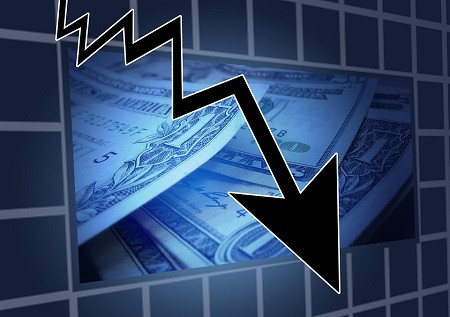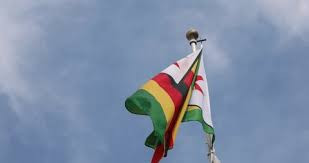
In the 45 years since Zimbabwe’s independence, the country has weathered political upheavals, economic collapse and social unrest. What has been constant is a legacy of economic scandals that have siphoned billions from state coffers, deepened poverty and eroded public trust.
While some culprits have faced justice, many have walked away untouched. This report chronicles some of the most significant economic scandals in Zimbabwe’s post independence history, separating those that led to convictions from those that quietly faded away.
Scandals with no convictions
l Willowgate Scandal (1988–1989): A media exposé revealed that government ministers were buying vehicles at a discount from Willowvale Motor Industries and reselling them at inflated prices for personal profit.
Outcome: Though a commission led to the resignation of five cabinet ministers, including the suicide of Maurice Nyagumbo, none were prosecuted. Some were later elevated to powerful government positions.
l Marange Diamond Scandal (2011): What happened: Then Finance Minister Tendai Biti revealed that over US$1 billion in diamond revenues from Marange fields was missing. Security forces, political elites and Chinese firms were implicated.
Outcome: Despite the staggering figures, no legal action was taken. The late former president Robert Mugabe admitted publicly that US$15 billion worth of diamond revenue was unaccounted for but no one was held responsible.
l Command Agriculture Fund mismanagement (2016–2020): What happened: The government’s flagship agricultural subsidy programme was marred by allegations of corruption and mismanagement. An estimated US$3 billion could not be accounted for. Sakunda Holdings, owned by presidential advisor Kudakwashe Tagwirei, was central to the controversy.
- Former MP’s death exposes Zanu PF’s intolerance
- ‘Airports expansion will boost passenger handling capacity’
- It’s getting politically murkier in South Africa
- Zim’s exhibition rated 7th globally
Keep Reading
Outcome: Despite extensive audits and public uproar, no prosecutions occurred. A parliamentary committee cleared Tagwirei of wrongdoing.
l Zesa-YTL Soltran procurement deal (1998): What happened: The power company awarded a multi-million dollar contract to a Malaysian company under suspicious conditions.
Outcome: Allegations of corruption surfaced, but no one was prosecuted.
l Harare Airport Road scandal (2008–2014): What happened: Construction of a road linking Harare’s city centre to the airport was riddled with inflated contracts and cost overruns.
Outcome: Despite public criticism and civil society pressure, no convictions were made.
l War Victims Compensation Fund (1994): What happened: The Fund, meant to compensate war veterans, was looted through fraudulent claims. Some individuals faked disabilities to get pay outs.
Outcome: No one was prosecuted, despite evidence from audit reports.
l VIP land grab scandal (1999): What happened: Under the guise of land reform, the elite allocated themselves prime farmland, bypassing proper procedures.
Outcome: Although widely reported, no legal action was ever taken.
l Zupco bribery case (2009): What happened: Accusations emerged over bribes involved in the state transport company’s procurement of buses.
Outcome: Despite evidence, no formal charges or convictions were brought.
l Air Zimbabwe Fokker plane deal (1987): What happened: A shady US$100 million aircraft deal saw the purchase of Fokker planes at above market prices.
Outcome: No prosecutions were made.
Scandals with convictions
l Zesa scam — Samuel Undenge (2018): What happened: As Minister of Energy, Undenge was accused of unlawfully directing Zesa to award a public relations contract without tender to Fruitful Communications.
Outcome: In 2018, he was convicted of criminal abuse of office and sentenced to five years in prison, though he was released early.
l Psmas mega-salaries scandal (2014): What happened: Executives at Premier Service Medical Aid Society were found to be drawing salaries exceeding US$200 000 per month, even as the organisation was near collapse.
Outcome: CEO Cuthbert Dube was dismissed. While some executives were arrested, the full scale of prosecution remains unclear, though at least one conviction was reported related to improper payments.
l Air Zimbabwe insurance fraud (2014): What happened: Executives at the national airline defrauded the company through inflated insurance premiums and ghost services.
Outcome: Several Air Zimbabwe officials were arrested. One executive, Peter Chikumba, was convicted and jailed.
l Covid-19 Drax International Scandal (2020): What happened: A Covid-19 procurement deal involving Drax International was found to be grossly inflated.
Outcome: Then Health Minister Obadiah Moyo was arrested. Although charges were later dropped, the scandal prompted his dismissal, and some suppliers were prosecuted for procurement fraud.
l Goat empowerment scandal (2024): What happened: A programme intended to empower rural farmers with goats was hijacked by political elites who redirected the livestock to their cronies.
Outcome: In a rare move, two Zanu PF officials were arrested, tried, and convicted of theft and abuse of public trust.
A tale of two countries
These outcomes are a clear indication of a disturbing reality in Zimbabwe. Justice is not equally applied. Scandals involving lower level officials or politically expendable figures occasionally result in prosecution.
But where senior government officials or powerful business allies are concerned, investigations often stall and silence follows. Anti-corruption watchdogs have long warned that Zimbabwe’s legal system struggles to assert independence in high stakes cases. Transparency International Zimbabwe notes that “selective justice” undermines public faith and emboldens further abuse.
The cumulative damage of these scandals is almost incalculable. Billions have been lost. The loss of public trust has further deterred investment, undermined tax compliance and contributed to a cycle of economic stagnation.
Zimbabwe’s journey to economic stability and democratic renewal is tied to its ability to hold the corrupt to account. Until the justice system is empowered to prosecute without fear or favour, economic scandals will remain not only a scar on the nation’s conscience but a recurring nightmare.
Something needs to change.
- Mutisi is the CEO of Hansole Investments (Pvt) Ltd. He is the current chairperson of Zimbabwe Information & Communication Technology, a division of Zimbabwe Institution of Engineers. — +263772 278 161 or [email protected].










